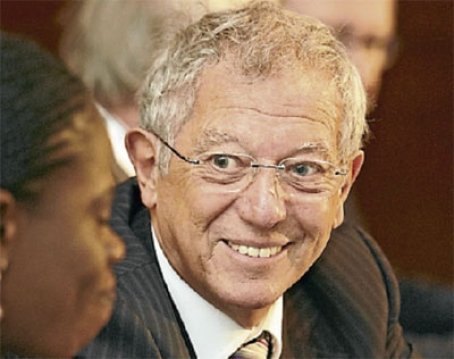Taking charge of change
Professor Tan Sri Dato' Dzulkifli Abdul Razak
Learning Curve: Perspective
New Sunday Times - 03-11-2013
THE ASSOCIATION OF COMMONWEALTH UNIVERSITIES: Shaping the next 100 years
THE world's first and oldest international university network celebrated its centenary last week in London, the United Kingdom. The Association Of Commonwealth Universities (ACU), which was established in 1913, saw more than 200 vice chancellors and senior university officials reliving its founding spirit 100 years ago at the Senate House, University of London.
Representatives of 53 universities reportedly attended the Congress Of Universities Of The Empire in London in 1912, which led to the establishment of the ACU a year later.
It was then decided that a bureau of information for the universities of the Empire should be established, and that its affairs should be managed by a committee representing both universities in the UK and overseas.
The office of the Universities Bureau Of The British Empire was opened in 1913 and, since 1963, the organisation has been known as the ACU.
The three-day meeting of minds at the ACU Conference 2013 discussed a broad range of issues, not only to celebrate its achievements and performance over a century, but also -- equally important -- to look into the future at the event themed Future Forward: Taking Charge Of Change. The ACU is mindful that higher education is at a crossroad with many tertiary institutions created in response to political agendas, the burgeoning global middle class and the availability of public and private funding. It recognises a variety of internal and external stakeholders demanding that higher education institutions demonstrate their engagement with the wider society as well as try to navigate the future.

Sir David King highlighted the problem of ecological threats in his keynote speech at the recent Association of Commonwealth Universities conference. — Photo courtesy of ACU.
One aspect that is distinctively different from 100 years ago is the problem of ecological threats as highlighted by the keynote speaker, Sir David King, UK Foreign Secretary's Special Representative for Climate Change. He stressed on the growing middle class and the impact of a number of issues ranging from health and social care to the environment and education.
The rise of the middle class to approximately two of the seven billion people today has led to an increase in consumption and created challenges in the 21st century. Some matters are unprecedented such as scarcity of water resources; threats to the planetary ecosystems including climate change; and energy security and supply, whereas others like conflict and terrorism, and food security and production are worsening.
Yet by 2030, the population size considered as middle class will jump to an estimated five of the nine billion people then. Asia will host almost 65 per cent of the global middle income by 2030.
Given all these challenges, Sir David expressed concern that conversations still use "last century language", for example the linear economy that is no longer sustainable. The shifts to collective response, global governance, sustainable consumption and that of Science, Technology and Innovation are not fully explored, especially at tertiary institutions.
The implications on the educational arena can be enormous. Whether embraced or forced upon, higher education will need to acquire "the adapt-and-change model or face a long hard road to obscurity". In many ways, the expectations universities face can also be high. Some even question whether "their (universities') quest for bigger and more luxurious buildings, fatter salaries, plusher facilities and increasingly esoteric peer-reviewed publications" has made them stray too far from their original mission.
Interestingly, the conference ended its session by hosting a Centenary Debate with the motion: "This House Believes That Societies Expect Too Much From Universities". The lively two-hour debate ended with the house rejecting the motion arguing that universities as knowledge institutions are responsible for and accountable to the society that they belong too, regardless of society expectations, if at all.
This brings into discussion the dimensions of social engagement as part of the universities' responsibility for the community. Taken in the context of climate change and sustainability, this mission is imperative to the future of not only the universities but also the communities at large.
In addition, in the 21st century, universities must also engage with global religion, promote religious literacy and raise their level in society and participate in peacemaking in many situations of conflict where religion is a factor, and how it relates to higher education. Ignoring values, ethics and ethos in a "secularising world" is no longer acceptable.
Instead, the way universities relate to the five billion of the world's population who are involved in the major religions is deemed vital to the future shaping of our world.
These are, no doubt, just some of the emerging issues that we must take charge to shape the next 100 years.
The writer was a plenary speaker at the conference.
